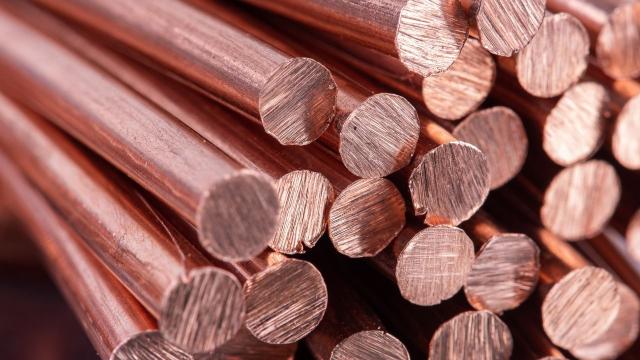We’ve known for a long time that copper can be used to kill certain types of bacteria, but researchers at RMIT University and the CSIRO have developed a copper surface that kills bacteria 100 times faster than normal copper.
Woof, okay, that was a mouthful. Let’s start basic. So copper is a special metal – it releases ions from its surface that are toxic to bacterial cells, causing them to die off. Golden staph is one of the kinds of bacteria that finds copper toxic, along with salmonella and E-Coli.
Before you go thinking that the CSIRO’s copper surface could be great to use against COVID-19 – you’re right, but it doesn’t replace the hygiene practices of masks, washing your hands and minimising contact.
“A standard copper surface will kill about 97 per cent of golden staph within four hours,” says Distinguished Professor Ma Qian of RMIT University.
“Incredibly, when we placed golden staph bacteria on our specially-designed copper surface, it destroyed more than 99.99 per cent of the cells in just two minutes.”
Professor Qian added that it’s 120 times faster, without the help of any drugs. For a common material like copper, it’s “remarkably potent”. This surface moulds a copper cast to make the alloy, with copper and manganese atoms arranging in specific formations.
So, how could we start to see this new copper surface introduced in society? Well, there are a number of useful places it could be used, in particular for touch-heavy surfaces like door handles. It could also see wide use on public transport, in school and in hospitals.
An interesting implementation would be in filters, antimicrobial respirators and in air ventilation systems, so we can catch airborne bacteria before it lands anywhere. We could even maybe see it one day in the home, to keep our living spaces bacteria-free.
So, what are the next steps for the CSIRO’s copper surface? Well obviously to see how we can fight COVID-19 with it. The CSIRO and RMIT are still working on the copper surface around this idea, so we’ll have to wait and see. While it’s working on that, using 3D-printed samples, it’s also worth considering copper’s place in fighting superbugs.
“Drug-resistant infections are on the rise, and with limited new antibiotics coming onto the market, the development of materials resistant to bacteria will likely play an important role in helping address the problem,” says Dr. Daniel Liang from the CSIRO.
“This new copper product offers a promising and affordable option to fighting superbugs, and is just one example of CSIRO’s work in helping to address the growing risk of antibiotic resistance.”
With a copper shortage looming, don’t expect to see every doorknob from here to Aukland replaced by copper anytime soon. That being said, it’ll be interesting to see how the CSIRO’s copper surface develops over time.
